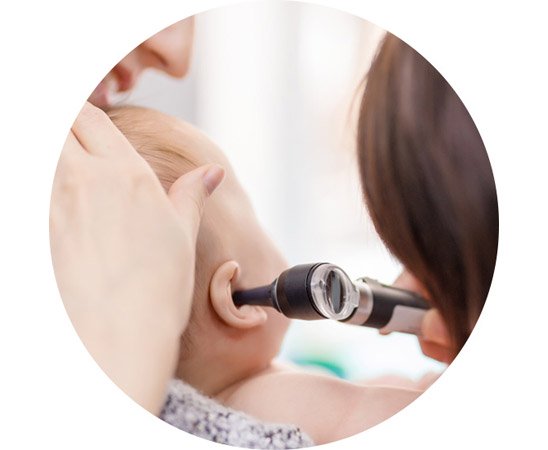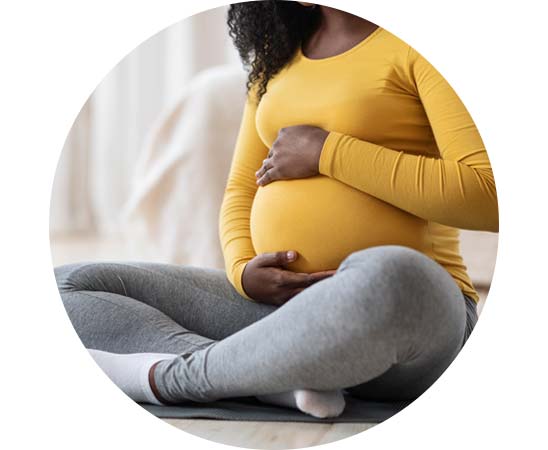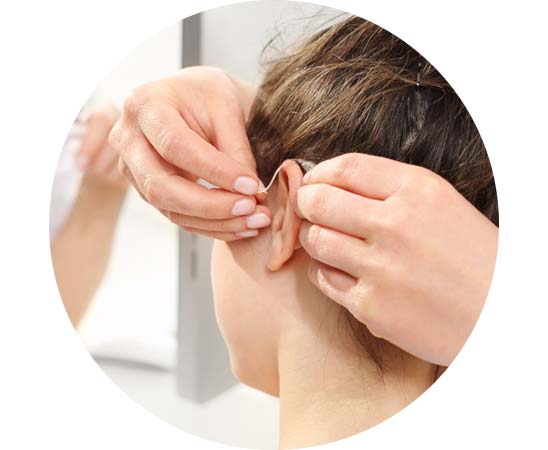The term congenital implies the presence of a defect at time of birth, therefore congenital hearing loss is where a hearing loss is present at time of birth. It is estimated that between a quarter and half of all severe to profound hearing losses are due to hereditary/genetic causes and many fall into the congenital category.
Anyone who has congenital hearing loss will have gained this through two different ways. These are "hereditary" or "non-hereditary" causes but it can sometimes be very difficult to determine which one is the factor. It can be almost impossible to determine whether a child's hearing loss is due to the combining of two recessive genes from its parents or an untoward event during pre-natal development/birthing process. It is believed that genetic issues are responsible for more than half of all of the instances with respect to congenital hearing loss.

Congenital hearing loss
Non hereditary congenital hearing loss
There are a number of causes of non hereditary congenital hearing loss and it is easier to go through the main ones step by step.
1. Teratogenic drugs: a drug or other substance capable of interfering with the development of a fetus, causing birth defects. Maternal exposure to these types of medications, especially in the very early stages of the development of the fetus, means that it will be particularly vulnerable to being damaged in some way. The drugs that fall into this category include Thalidomide, Reticonic and Quinine, and exposures to these are likely to results in a significant hearing loss being present at birth.
2. Viral infections: this is where the mother has a particular infection during pregnancy and this can have a devastating effect on the unborn child. Those that are the most damaging and if contracted are likely to result in a mild to profound loss for the child are: Toxoplasmosis, Rubella and some forms of Syphilis.
There are also congenital hearing losses that occur during the fetal inner ear development as well as some dangers that are present during the immediate aftermath of the birth, such as Neo natal Septicaemia or Meningitis.

Hereditary congenital hearing loss
Hereditary types of hearing loss are where there has been a loss of auditory function which has been caused by the transmission of genetic information. Whilst we are specifically dealing with congenital hearing loss it should be noted that this may not always be present at birth but could develop in later life.
Examples of the syndromes which cause congenital hearing loss include:-
– Down syndrome
– Usher syndrome
– Treacher Collins syndrome
– Alport syndrome
– Waardenburg syndrome
Congenital hearing loss (and hereditary loss not present at birth) can happen in isolation but can also develop alongside other multiple defects and therefore identified as part of a syndrome.

Treatment of a Congenital Hearing Loss
The treatment for a child suffering from congenital hearing loss should be started before the child is six months old. The research into this area has uncovered the fact that children who receive treatment as early as possible have a better chance of developing their communication skills. This includes sign language and spoken skills, and these skills can be developed to a level that is comparable with their peers.
There are a range of treatments that can be offered to children and this is where it is important for parents to think about what is best for their child and their family. There are many different factors which need to be weighed up, including; the age of the child, the personality of the child, the (expected) development level of the child, the level of the hearing loss, any preferences of the parents or child and budget.
These factors need to be considered and it is best that parents discuss their options with specialised staff and / or medical professionals with experience in this field. While the interest and expectations of a parent will always be crucial when it comes to determining how a child will be treated, there is a need to take on board the advice and opinion of the experts. This is where the best information and the most rounded decision will be made to benefit the child. There is also a need to be flexible to ensure that the treatments selected and the progress being made can be reviewed and analysed over time. Certain treatments may be better for certain ages and with technology improving and evolving all the time, there may be new solutions or support available which provides parents with more options to give their child a better chance of hearing.
Hearing aids
If parents decide that a hearing aid is the best way to provide support for a child suffering from congenital hearing loss, support is available from an early age. It is possible to have a hearing aid fitted from a very young age. For young children, a behind-the-ear hearing aid is recommended as this is easier to fit and adjust as the child grows and develops.
While the majority of focus must fall on the child suffering from the congenital hearing loss, it is important that parents think about their entire family. This is especially the case when it comes to families that have other children in it. There are ways to develop skills for communicating and if the entire family develops sign language skills or encourages lip reading, there is a greater chance of the child benefiting form long term support and a welcoming environment.
Congenital hearing loss in a child can be difficult for a family, but with the right approach and proper medical and professional support, there is no need to let this form of hearing loss be a barrier in the child's life.





